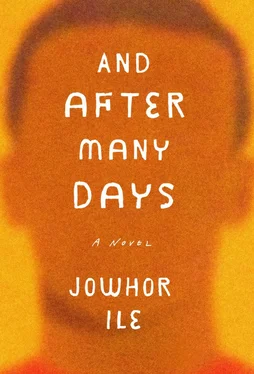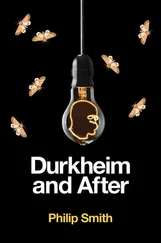Nkaa breaks into singing; his voice is smoky, and he taps his fingers on his wrapper, inspiring a response from his audience.
Paul nudges Ajie awake. He elbows him gently three times, and the bedspring creaks as Ajie rolls over on his side. The morning sun catches his eyes.
—
Everything is going well. The sound system has been set up successfully, four canopies pitched around in the quadrangle, and people are seated already, waiting for the pastor to begin the funeral service with a prayer. Ma is sitting on a bench beside the casket, her hand resting on the lid’s silver handle, as if she needs to steady it from falling off.
There is a crowd, but Ajie doesn’t notice anyone in particular. Deaths always draw a crowd, funerals draw larger crowds, and funerals for people who passed away in dramatic circumstances draw the largest crowds.
People push their way toward him. They talk, offer condolences, touch him on his shoulders — strangers, family, friends, all in beautiful dark clothes. His eyes cut through the array of them, their essence yielded up to him, but he doesn’t drink them in. He feels like he is all eyes. He has never seen as clearly as he does today. His old friend Gospel is testing the microphone, and Bibi hurries past with a tray of refreshments. That’s just Bibi being her capable self, making sure everyone is catered to. A lump rises in Ajie’s throat; his rib cage is about to heave. Dotun walks over to ask if he and Gospel need any help, and Ajie says no, he has this one, but Dotun still stands by as Ajie switches the mic on and off and taps it and adjusts a button on the feedback speaker.
A girl Ajie does not care to remember is wailing by the pavement; she is sitting on the floor with her legs stretched out, bawling. Her cry becomes a song, and people gather around to console her. Older people in Ogibah, it seems, still stay away from the funeral of a very young person. Dying young is always considered an indecent act that should be met with proportionate rudeness so it doesn’t repeat itself. Application Master came to see Ma that morning and stayed with her for a while. He has gone home, saying he would return later. The girl weeping by the pavement has broken into a mourning dance, swaying and waving an invisible handkerchief this way and that way like someone paddling a canoe. This inspires sobs from other mourners, all of them showing up at a funeral and weeping louder than the bereaved. Bibi walks by the mourners, and one of them holds her by the waist, and Bibi pauses and touches her slightly on the back. Were they childhood friends? Ajie decides he does not know any of them. If he tells Bibi what he is thinking, she will say he has spent too much time abroad and has grown impatient with Ogibah ways.
He is very thirsty. Like he hasn’t had a drop to drink in the past thirteen years. All he needs right now is a cold bottle of Guinness or half a glass of stinging whiskey. He is desperate for a cigarette, but he knows there is no quenching that. The dead will not be consoled; neither will those who live in the skin of their dead.
Some people have traveled from very far; many have come on the shortest notice, as soon as they heard. They tell Ajie all these things and look him in the face and hold his hand. Ma couldn’t reach Mr. Ifenwa, since he moved back to his home village, Nnobi.
The pastor is standing by the lectern now and, after a short prayer, reads a verse from Job 19 and a couple of verses from I Corinthians 15. They all rise to sing from a hymnbook. Ma picked the hymn herself. She deliberated over three final choices and then selected a favorite from her school days, “Be Still My Soul.” Ajie mouths the words of the hymn as the assembly sings along. He looks at Ma, standing beside the casket, the funeral program fluttering a little in her hand.
Be still, my soul; the Lord is on thy side;
Bear patiently the cross of grief or pain;
Be still, my soul; thy God doth undertake
To guide the future as He has the past…
The casket is lowered into the ground just as the church bells strike one.
—
Back in Port Harcourt later that evening, Ajie reaches for the school bag in the wardrobe. He wonders how it is possible to have Paul’s school bag returned to them after such a long time. In a place where things vanish without explanation, where all the wrong things are always waiting to happen, the miracle of having Paul’s bag in his hand now makes him wonder. He holds himself back from examining or handling the contents. He puts the bag in the wardrobe.
Bibi is sitting on the veranda with Dotun. They are talking about Braithwaite Memorial Hospital, where Bibi will be starting her residency program. They are both moving down from Ibadan, where they studied, to Port Harcourt. Ma is in the back garden, reading aloud to herself from the lesson for next Sunday school. As Ajie steps into the parlor, he picks up some of the words Ma is reading. He tries to follow her sentences, but they dance on the limits of his mind.
Ma’s typed manuscripts are stacked on the dining table. Ferns and Faunas of the Orashi Plain . He thinks of the specimens in the book: Even if they become extinct, at least a memory of them has been preserved and can be called to life any day. He wonders if there is a bigger volume somewhere, a roll of every living thing, past and present, gathered, standing in their cohort: fungi, plants, animals, in families, genera, species, and variants. He is still thinking about this when Ma’s voice comes again from the back of the house. “Bibi,” she calls out. Ma is looking toward the house. She has taken off her reading glasses. “It’s evening already, Bibi. Please put something on the fire. We have to eat.”
Ajie reaches for the light switch on the parlor wall and turns it on.
Sodienye Kurubo, my friend and my most exacting critic, who read this book first, in draft, and many times over; for his sharp eyes and good heart, for the angry-red notes that helped this book become what it is. Thank you, Sodi. How I for do?
For their love and support, for honoring my need for space, for never sharing their worry about me squandering time, I thank my family: Osa umu ka Edi-nwa-Ile, especially Dadu Fearn; I salute all the Iles of Obagi ( Nde guzo a guzo! ); Georgia and Joshua Fearn, for making me laugh.
I owe an enormous debt of gratitude to many friends who read drafts, gave keys to their flats, forgave when I didn’t return calls or respond to e-mails and text messages, bought my round of drinks while I looked away: Adiela Orike (dear cousin-brother, for giving me my first home away from home), Jonah Dienye, Bobby Obi, Sylvia Ofili, Nnachi Nnachi, Yemi Akinwale (that Yoruba boy), Owukori Akuyibo, Mfoniso Udosen, Teinane Okpokiti, Abiodun Okunola, Bassey Essien, Philip Iyayi, Niyi Famuboni, Naakuu Paul-Birabi (self-declared “Afropolitan with Anglo-Saxon work ethic”—ha!), Gérard Tetegan, Boma Koko, Biebele Okpokiri, and Ilami Onyekwum, wherever she may be.
I thank Chimamanda Adichie for her matchless generosity of spirit; Ike Anya, waterer of seed; John Bond, for the kindness of that e-mail; Dominic Reilly, for speaking with me in Dothraki, and for much more.
Thank you to my agent, Sarah Chalfant, who makes the world seem easier than it really is; to Alba Ziegler-Bailey and Jacqueline Ko. I am grateful to Tim Duggan, my judicious editor; to Thomas Gebremedhin and everyone at Tim Duggan Books.












